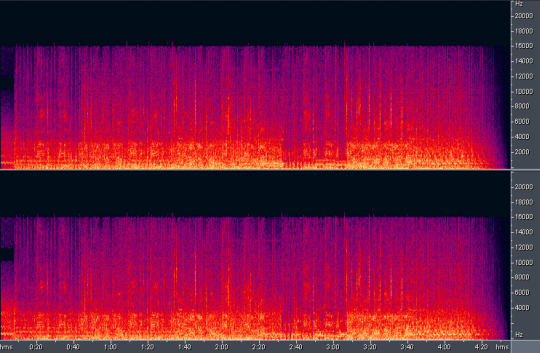Lossy audio (compressed)
Lossy is a term for compressed audio. The most popular format for lossy audio is MP3. It is by far the most used audio format in the world as it’s compatible with pretty much any form of audio software or hardware. The problem with MP3 in general is the compression itself. When ripping a vinyl or a tape to MP3, the audio is compressed to keep it small. This causes quality loss.

Lossless audio (uncompressed)
Lossless audio is becoming more and more popular these days. The reason for this is because many traders are starting to realize that in order to let old recordings survive, it’s important that the original quality of the recording remains. The most popular lossless format today is FLAC. Which stands for Free Lossless Audio Codec. When you rip a vinyl or a tape to FLAC it does not lose any audio quality and you can keep burning it to CD and make as much copies as you want as the quality doesn’t change. Of course this does mean that the ripped files will be significantly larger then compressed MP3 files, but this is a small price to pay in our opinion.

Transcodes
Transcodes are compressed audio files (like MP3) that have been re-encoded to another compressed audio format. This causes severe quality loss as the already lossy file is being compressed a second time, therefor losing again a large amount of the original quality. There is a very nifty free piece of software available called Trader’s Little helper that can help you identify if a file is lossless or not. It’s mostly used for FLAC files but can be used for other lossless formats as well.

So remember:
Are you going to rip and share a recording? Encode to a lossless format to avoid quality loss in the future.
